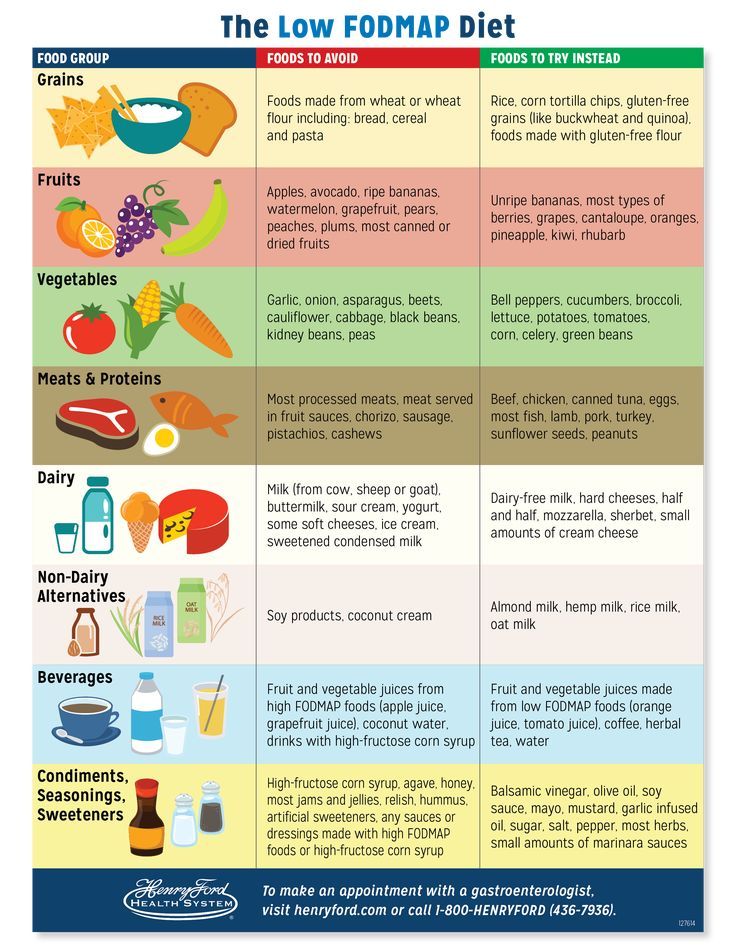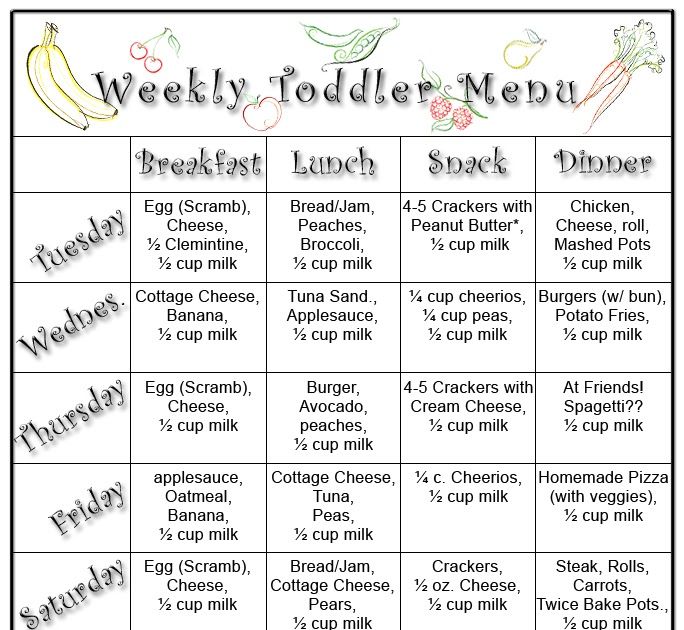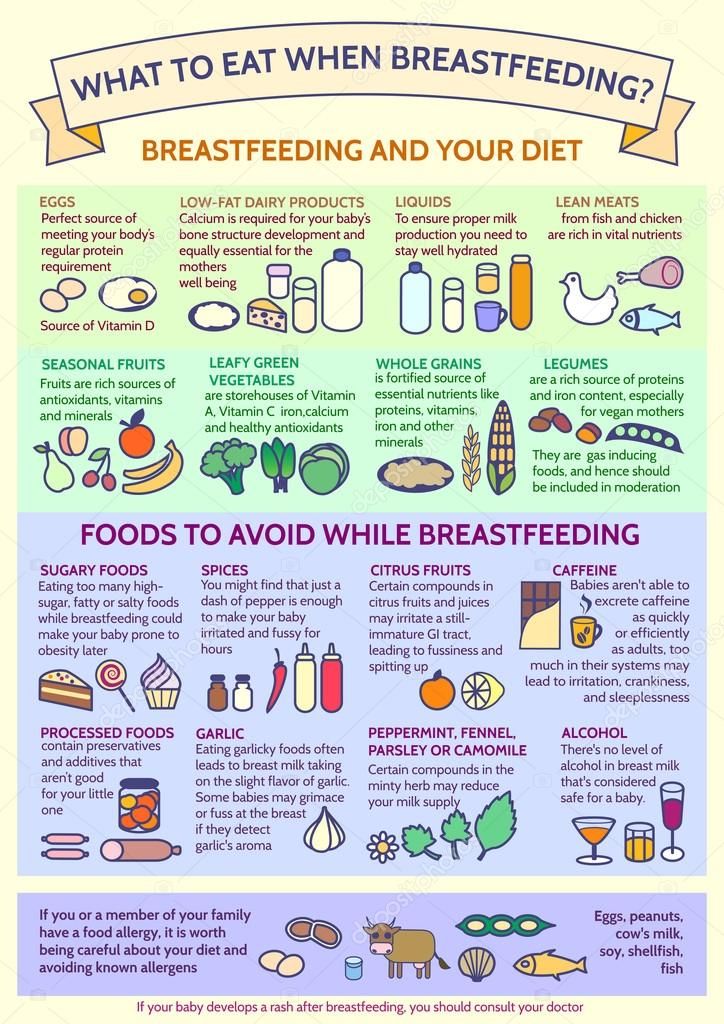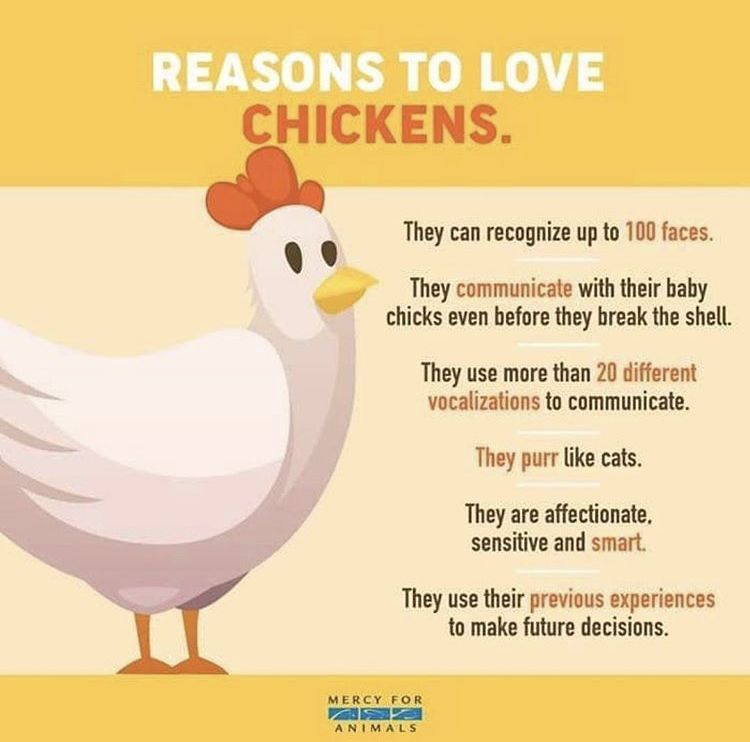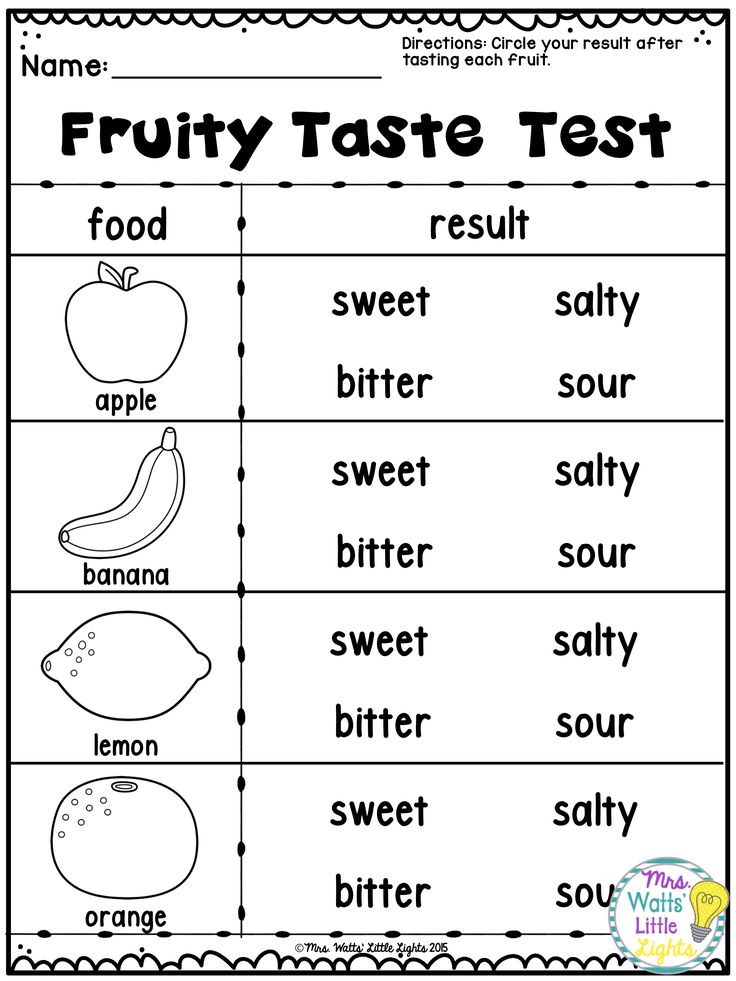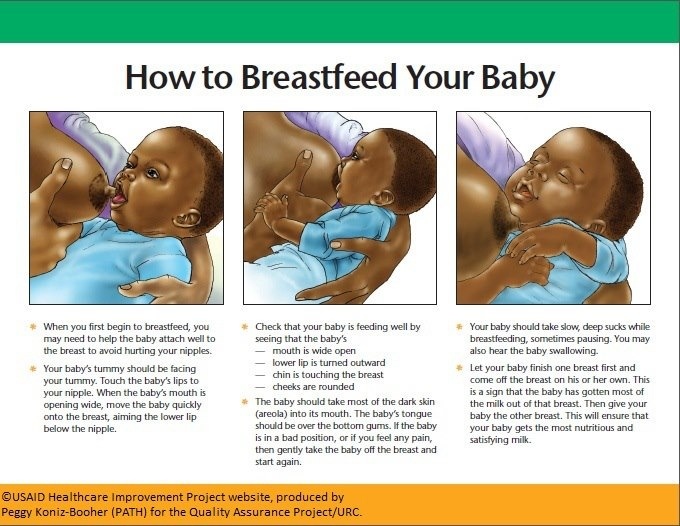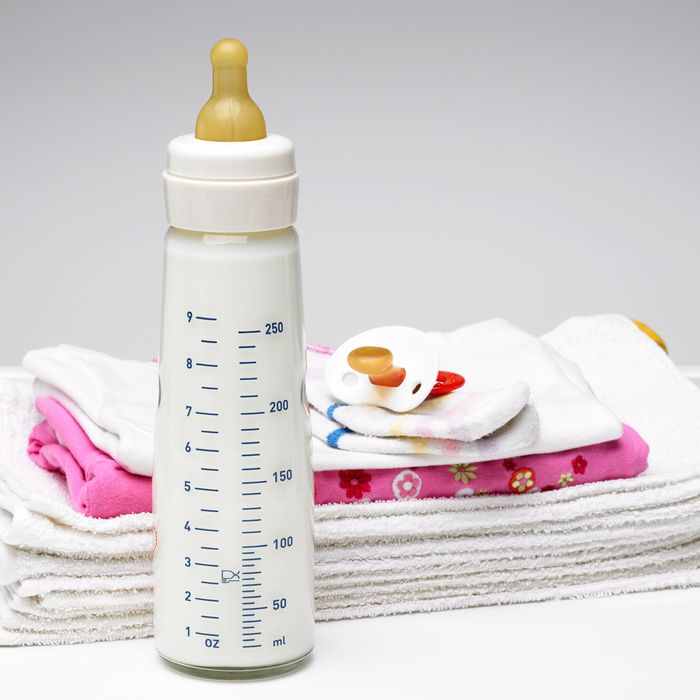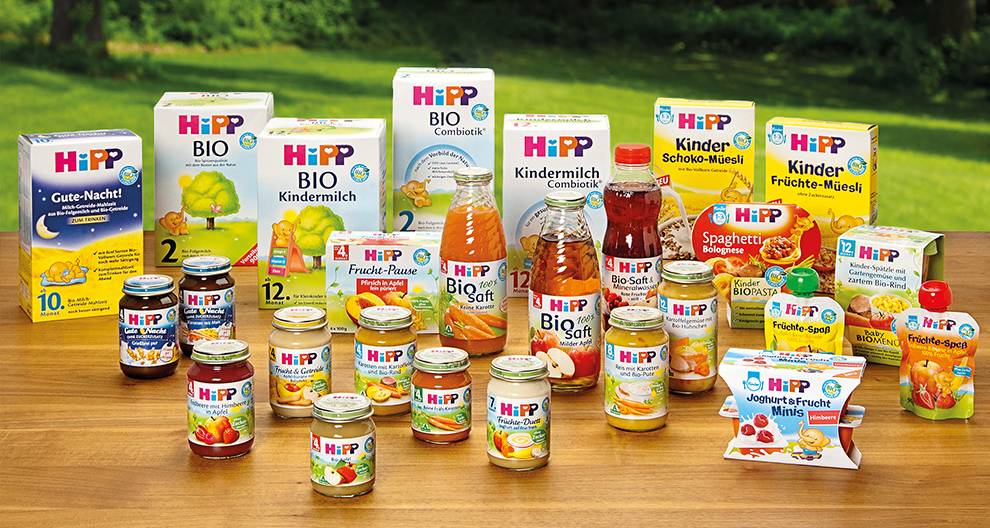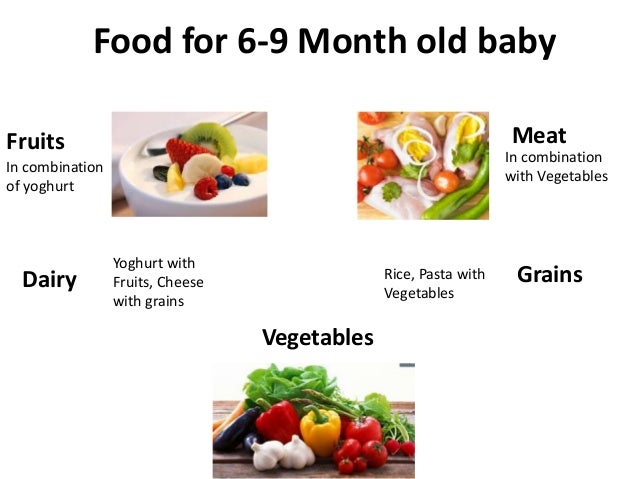What food to eat after delivery of baby
Pregnancy - After Pregnancy - Postpartum Diet and Exercise
After you have your baby, it is important to take care of yourself and eat nutritious foods.
Diet and Exercise After Pregnancy
If you are breastfeeding, the food you eat helps your baby grow strong and healthy, too. Good eating habits and exercise will help you lose the weight you gained.
Healthy Eating Tips
Eat a variety of foods. Try to eat a balanced diet of fruit, vegetables, grains, protein foods and diary each day. Visit ChooseMyPlate.gov for more information.
Drink plenty of liquids. Your body needs lot of fluid (about 6-10 glasses a day) especially if you are breastfeeding your baby. Drink mostly water, milk, and fruit juice.
Eat foods that have protein such as milk, cheese, yogurt, meat, fish and beans. Protein rich foods are important to help you recover from childbirth and keep your body strong. If you are under 18, or were underweight prior to pregnancy, you need to eat more protein.
Eat your fruits and vegetables. Try to make half your plate fruits and vegetables. Fruits and vegetables have vitamins and minerals that keep you healthy. They also have fiber, which helps prevent constipation. Make sure to wash fruits and vegetables under running cold water before eating them.
Lose weight safely. Talk to your doctor about safely losing weight after your baby is born. Losing weight too quickly can affect your breast milk supply. Do not take diet pills. They contain harmful drugs that can be passed to your baby through breast milk.
Take prenatal vitamins. If you are breastfeeding, it is a good idea to continue to take your prenatal vitamins. Your doctor can prescribe these pills so that your health insurance will cover a portion of the cost.
Limit junk foods. Soda pop, cookies, donuts, potato chips and french fries are okay sometimes, but don’t let them take the place of healthy foods!
Avoid these Foods when Breastfeeding
There are some foods and other substances that can be harmful to both you and your baby if you are breastfeeding.:max_bytes(150000):strip_icc()/what-can-i-eat-if-i-have-a-peptic-ulcer-1742154-01-ec37a34d14c44195999f8d44372f820b.png?resize=1060%2C707&ssl=1)
Alcohol: Wine, wine coolers, beer, drinks like hard lemonade and other malt liquor beverages, shots and mixed drinks contain alcohol that passes to your baby through your breastmilk and can harm your baby’s brain and body development.
Caffeine: Caffeine is a stimulant that passes through breast milk to the baby and may affect growth. Caffeine is found in tea, coffee, chocolate, many soft drinks and over-the-counter medicines.
Swordfish, Shark, King Mackerel and Tilefish: These fish have high levels of a toxin called mercury. Mercury is harmful to your growing baby’s brain. If you eat tuna, it is okay to eat up to 6 ounces of canned tuna a week but make sure to choose light tuna.
Exercise After Pregnancy
Exercise helps you:
- Lose the weight you gained during pregnancy
- Reduce backaches, constipation and bloating
- Lifts your spirits and improves posture
- Helps build muscle tone and strength
- Promotes better sleep
Once your doctor says it is okay to start exercising, there are many ways to be active.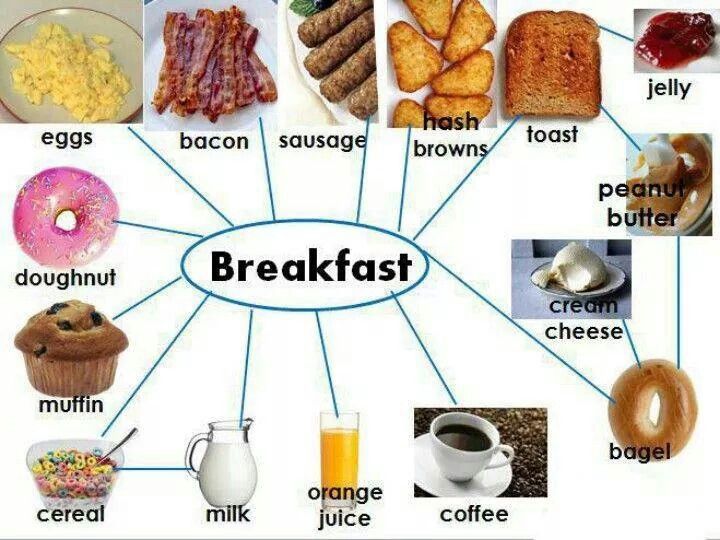
Walking is a great way to exercise because it puts very little stress on your body. Your baby will probably enjoy being walked in a stroller too. Try walking briskly for 20-30 minutes every day or at least 3 times per week. Meet with a friend or other new moms to go walking. It’s good to get out of the house and connect with friends or other new mothers. You will enjoy the chance to talk about your baby or to just be with other adults!
Exercise classes are another fun way to get in shape and sometimes you can find a class that will include your baby. For example, look for a mom and baby yoga class in your area.
The YMCA is a good place to find exercise classes for moms and babies. Some YMCAs offer financial assistance. They may also offer childcare for your baby while you exercise. Find out if you have a YMCA in your area. If you live in the greater Seattle area go to Seattle YMCA.
12 Foods for New Moms
Written by Hilary Parker
In this Article
- Salmon
- Low-Fat Dairy Products
- Lean Beef
- Legumes
- Blueberries
- Brown Rice
- Oranges
- Eggs
- Whole-Wheat Bread
- Leafy Greens
- Whole-Grain Cereal
- Water
Losing those pregnancy pounds might be at the front of your mind. But there’s something that's even more important for your body after your baby arrives: eating foods that give you the energy to be the best mom you can be.
Routinely eating healthy foods throughout the day will maximize the little energy you probably have as a new mom. If you’re nursing, the quality of your breast milk stays pretty much the same no matter what you choose to eat. But there's a catch: When you aren't getting the needed nutrients from your diet, your body will provide them from your own stores. So make sure you get all the nutrients you and your baby need.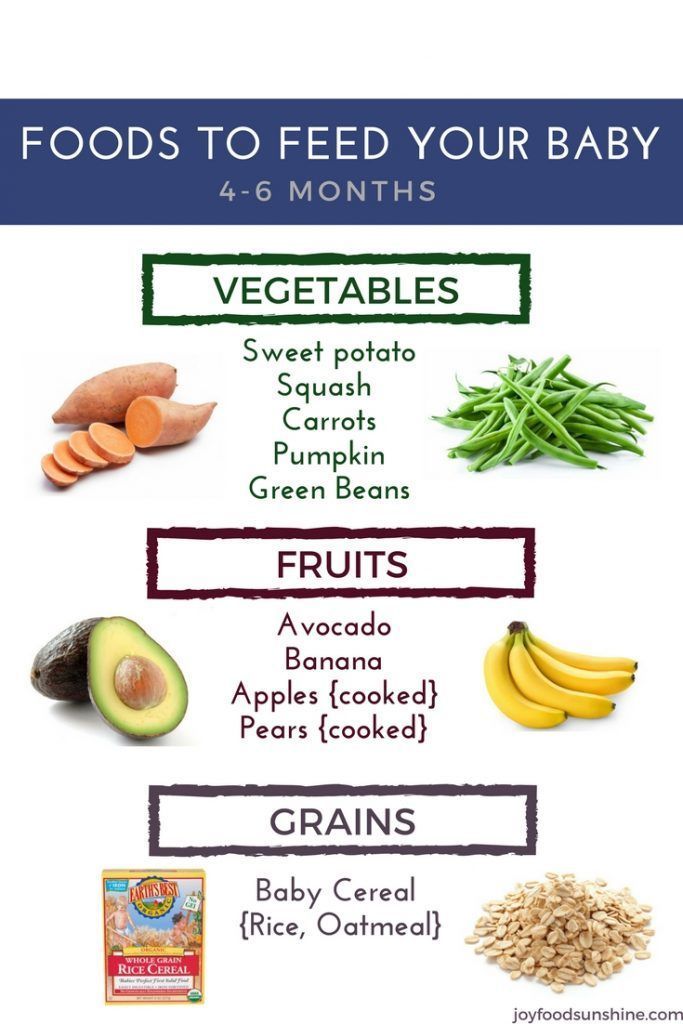 It will benefit both of you.
It will benefit both of you.
Try to make these healthy foods a regular part of your diet.
Salmon
There's no such thing as a perfect food. But salmon is pretty close to it when it comes to a nutritional powerhouse for new moms. Salmon, like other fatty fish, is loaded with a type of fat called DHA. DHA is crucial to the development of your baby's nervous system. All breast milk contains DHA, but levels of it are higher in the milk of women who get more DHA from their diets.
The DHA in salmon may also help your mood. Studies suggest it may play a role in preventing postpartum depression.
One caution: The FDA recommends that breastfeeding women, women who are pregnant, and women who might get pregnant limit how much salmon they eat. The guidelines recommend an average of 12 ounces, or the equivalent of two main servings, per week. The reason is to limit the amount of mercury your new child is exposed to.
The mercury level in salmon is considered low.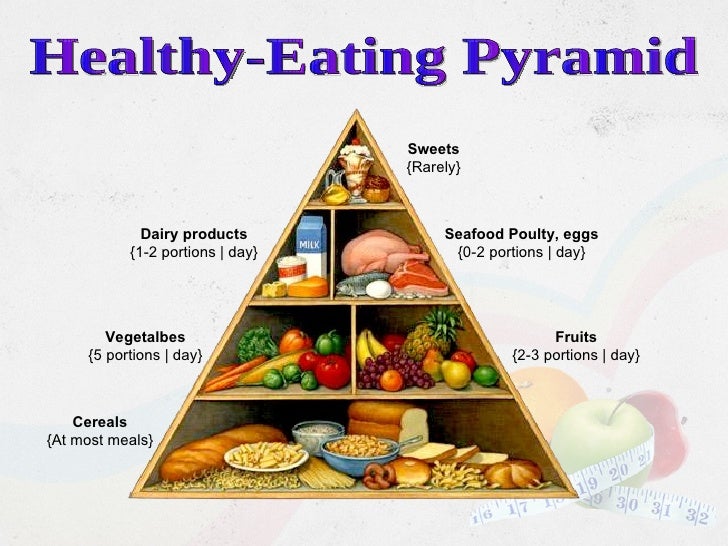 Some other fish, such as swordfish or mackerel, have a high amount of mercury and should be avoided altogether. The 12 ounces are an average. Eating more in 1 week -- such as having three servings instead of two -- won't hurt as long as you eat less the following week.
Some other fish, such as swordfish or mackerel, have a high amount of mercury and should be avoided altogether. The 12 ounces are an average. Eating more in 1 week -- such as having three servings instead of two -- won't hurt as long as you eat less the following week.
Low-Fat Dairy Products
Whether you prefer yogurt, milk, or cheese, dairy products are an important part of healthy breastfeeding. Milk delivers a boost of bone-strengthening vitamin D. In addition to providing protein and B vitamins, dairy products are one of the best sources of calcium. If you're breastfeeding, your milk is loaded with calcium to help your baby's bones develop, so it's important for you to eat enough calcium to meet your own needs. Try including at least three cups of dairy each day in your diet.
Lean Beef
Boost your energy as a new mom with iron-rich foods like lean beef. A lack of iron can drain your energy levels, making it hard for you to keep up with the demands of a newborn baby.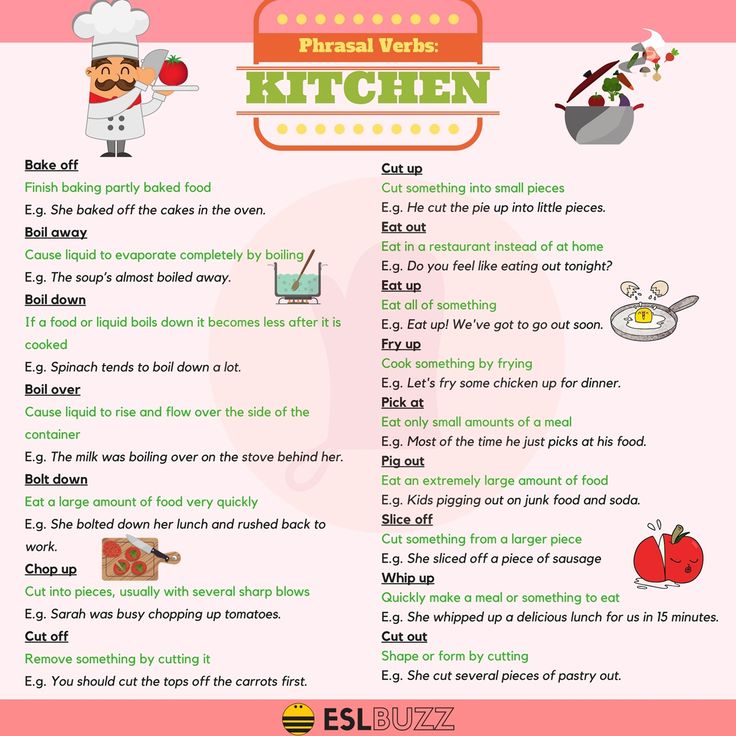
Nursing moms need to eat extra protein and vitamin B-12. Lean beef is an excellent source for both.
Legumes
Iron-rich beans, particularly dark-colored ones like black beans and kidney beans, are a great breastfeeding food, especially for vegetarians. They’re a budget-friendly source of high quality, non-animal protein.
Blueberries
Breastfeeding moms should be sure to get two or more servings of fruit or juice each day. Blueberries are an excellent choice to help you meet your needs. These satisfying and yummy berries are filled with good-for-you vitamins and minerals, and they give you a healthy dose of carbohydrates to keep your energy levels high.
Brown Rice
You might be tempted to cut back on carbs to help lose the baby weight. Don’t. Losing weight too quickly may cause you to make less milk and leave you feeling sluggish. Mix healthy, whole-grain carbs like brown rice into your diet to keep your energy levels up. Foods like brown rice provide your body the calories it needs to make the best-quality milk for your baby.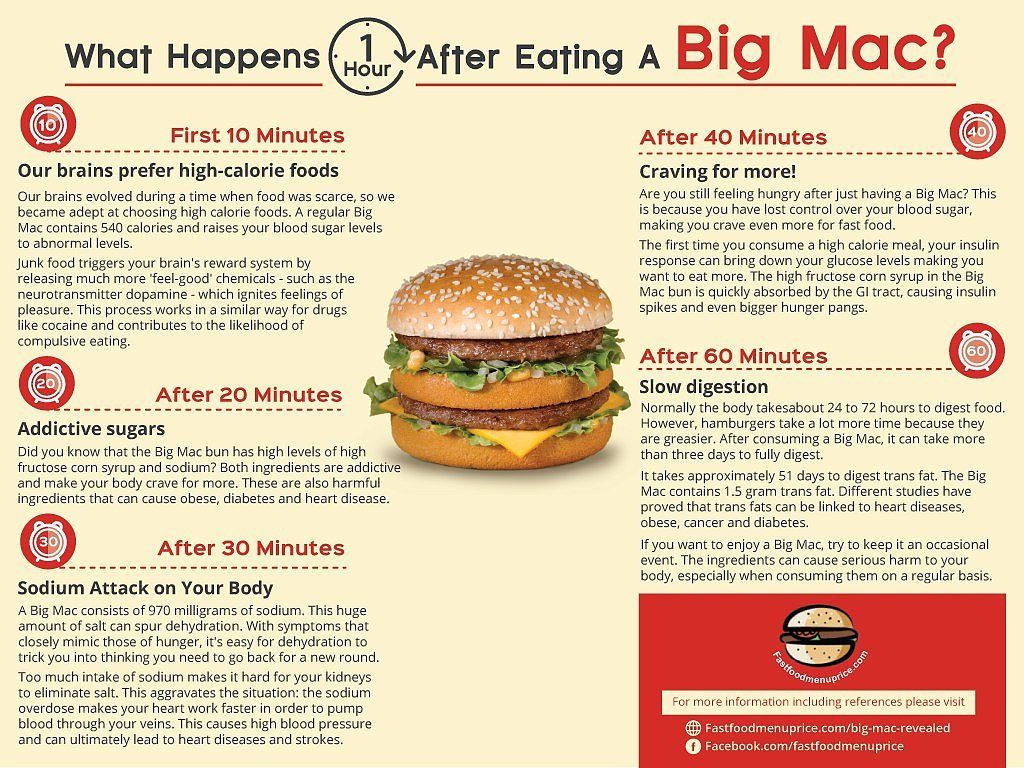
Oranges
Portable and nutritious, oranges are a great food to boost energy. Oranges and other citrus fruits are excellent breastfeeding foods, since nursing moms need more vitamin C than pregnant women. Can't find time to sit down for a snack? Sip on some orange juice as you go about your day -- you'll get the vitamin C benefit, and you can opt for calcium-fortified varieties to get even more out of your drink.
Eggs
Eggs are a versatile way to meet your daily protein needs. Scramble a couple of eggs for breakfast, toss a hard-boiled egg or two on your lunchtime salad, or have an omelet and salad for dinner. Opt for DHA-fortified eggs to boost the level of this essential fatty acid in your milk.
Whole-Wheat Bread
Folic acid is crucial to your baby's development in the early stages of pregnancy. But its importance doesn't end there. Folic acid is an important nutrient in your breast milk that your baby needs for good health, and it's crucial you eat enough for your own well-being, too.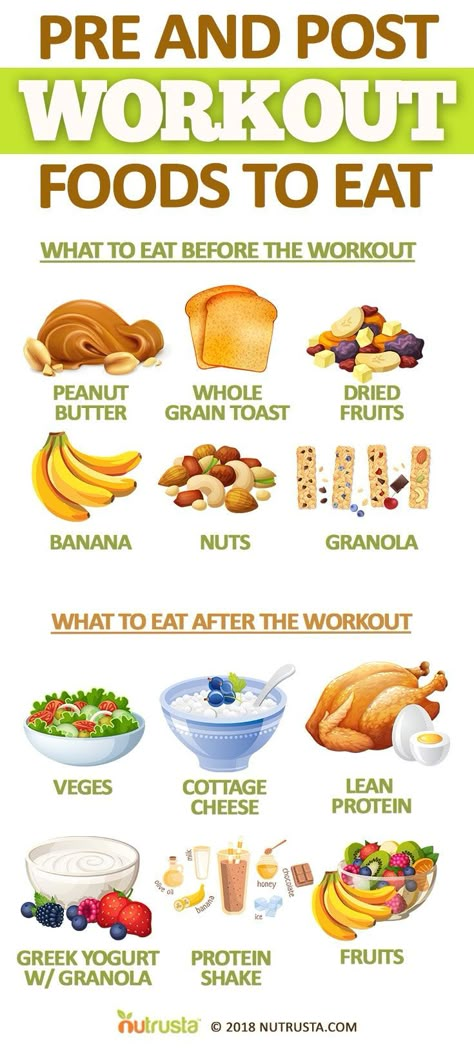 Enriched whole-grain breads and pastas are fortified with it, and also give you a healthy dose of fiber and iron.
Enriched whole-grain breads and pastas are fortified with it, and also give you a healthy dose of fiber and iron.
Leafy Greens
Leafy green veggies like spinach, Swiss chard, and broccoli are filled with vitamin A, which is good for you and your baby. The benefits don’t stop there. They're a good non-dairy source of calcium and contain vitamin C and iron. Green veggies are also filled with heart-healthy antioxidants and are low in calories.
Whole-Grain Cereal
After yet another sleepless night, one of the best foods to boost energy for new moms in the morning is a healthy breakfast of whole-grain cereal. Many cold cereals are fortified with essential vitamins and nutrients to help you meet your daily needs. Whip up a healthy, hot breakfast by stirring blueberries and skim milk into a delicious serving of oatmeal.
Water
Breastfeeding moms are especially at risk for energy-draining dehydration. To keep your energy levels and milk production up, make sure you stay well-hydrated. You can vary your options and meet some of your fluid requirements by drinking juice and milk. But be careful when it comes to caffeinated drinks like coffee or tea. Have no more than 2-3 cups a day, or switch to decaf. Caffeine enters your breast milk and can cause your baby to become irritable and sleep poorly.
You can vary your options and meet some of your fluid requirements by drinking juice and milk. But be careful when it comes to caffeinated drinks like coffee or tea. Have no more than 2-3 cups a day, or switch to decaf. Caffeine enters your breast milk and can cause your baby to become irritable and sleep poorly.
What to eat while breastfeeding | Breastfeeding Diet
You know that breast milk is the best food for your baby. What about your own nutrition while breastfeeding? We asked the nutritionist a few questions about the nutrition of a nursing mother.
Share this information
Priya Tew, UK-based registered dietitian :
Priya is a nutritionist, M.D., multi-award winning member of the British Dietetic Association and the Health Professions Council. She has three children, and she breastfed each of them for up to 18 months.
During breastfeeding, there is no need to follow a special diet, the main thing is that your diet is balanced.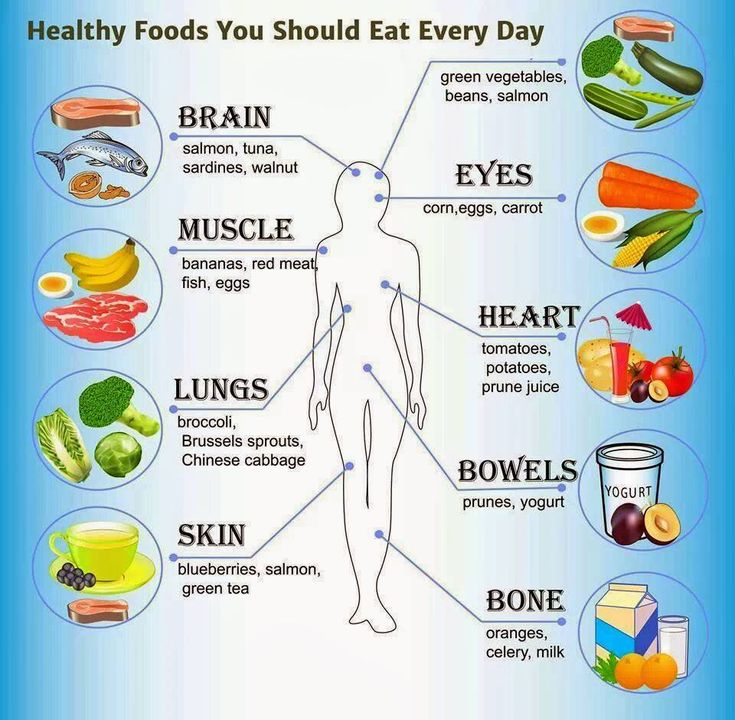 It should include plenty of fruits and vegetables, whole grains such as oats, brown rice, various cereals, and breads labeled "whole grain", "wholemeal" or "wholemeal". These foods, along with potatoes, pasta, and couscous, are high in starch, an important source of energy.
It should include plenty of fruits and vegetables, whole grains such as oats, brown rice, various cereals, and breads labeled "whole grain", "wholemeal" or "wholemeal". These foods, along with potatoes, pasta, and couscous, are high in starch, an important source of energy.
In addition, you need lean proteins found in chicken, eggs, legumes, lentils, fish, and lean beef, as well as healthy fats found in olive oil, nuts, seeds, avocados, and fatty fish such as salmon and mackerel. Oily fish is very good for your health and development of your baby, but you should not eat more than two servings per week (about 140 g), as it may contain harmful impurities. 1
Should I take vitamins while breastfeeding?
The most important is vitamin D. It is essential for healthy bones, you and your baby. We get most of this vitamin from the sun. If you live in a region with insufficient solar activity, especially in winter, your body may lack it. In this case, the doctor may advise taking vitamin D supplements. 2
2
You also need to get enough calcium, as it is excreted from the body during breastfeeding. 3 Try to eat four servings of foods rich in this mineral a day. These can be dairy products such as milk, yogurt, and cheese, or non-dairy products such as nuts, tofu, sesame seeds, and leafy vegetables. One serving may consist of, for example, half a cup of green vegetables or a small piece of cheese (50 g).
What foods should I avoid while breastfeeding?
The good news is that you can eat almost anything while breastfeeding. Only the consumption of oily fish should be limited. In small quantities, even caffeine is acceptable - more on this below.
If you are not allergic to peanuts, there is no reason to deny yourself products that contain peanuts. Recent studies show that if you eat peanuts while breastfeeding and gradually introduce them into your baby's diet during the first year, your baby will be less likely to become allergic to them in the future.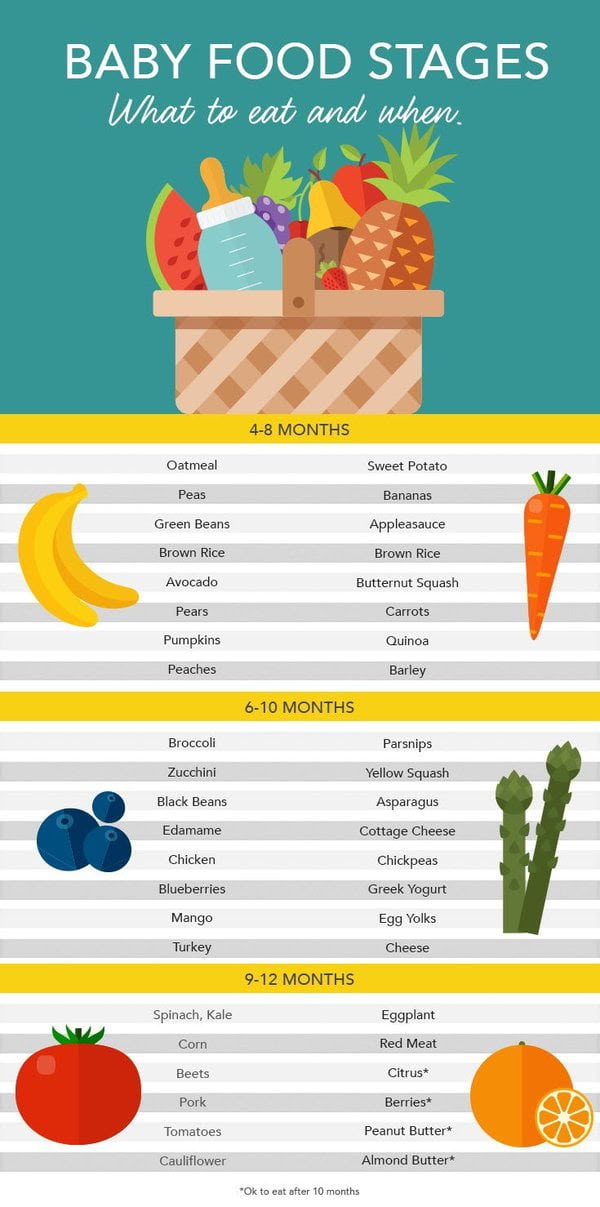 4
4
Are extra calories needed while breastfeeding?
Breastfeeding mothers need about 500 more calories a day. 5 But every mother is unique and your energy needs will change throughout your breastfeeding period. The number of calories you need depends on your baby's age, appetite, height, and weight, as well as your body mass index (BMI), your activity, and factors such as whether you are exclusively breastfeeding or not, and whether you are breastfeeding twins or multiple babies.
Can I go on a diet while breastfeeding?
Trying to lose weight while breastfeeding is not a good idea because you need to get enough nutrients for you and your baby. The fat accumulated during pregnancy is used to produce milk, so breastfeeding in itself will help you shed those extra pounds.
If your weight changes by more than 1 kg per week, check if you are eating a healthy and balanced diet and adjust if necessary. You can also ask your doctor for advice.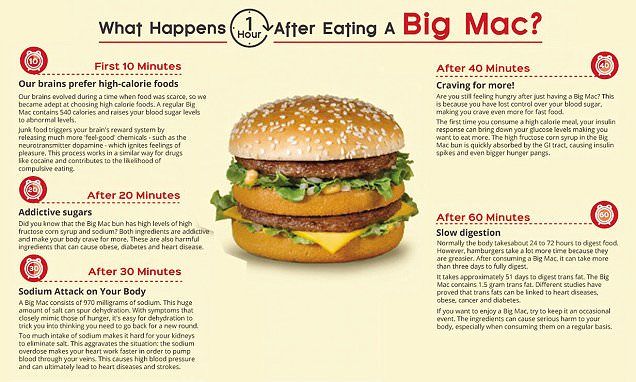
How can I find time to prepare healthy meals?
Having devoted yourself to feeding a child, you can forget about your own nutrition. However, it is important to ensure that your diet does not consist only of sweets and cookies. Of course, sweet snacks are easy and quick, but they do not bring any benefit to your body.
Opt for quick yet nutritious meals like scrambled eggs with spinach or fried chicken with brown rice. Oatmeal is great for breakfast, as it provides a slow release of energy from grains and soluble dietary fiber, which is what you need to restore strength in the morning after a night of breastfeeding.
Store pre-cut fruits and vegetables in the refrigerator for light snacks, or carry unsalted nuts in your bag. It's much easier than peeling tangerines with one hand while holding a baby with the other.
Should I drink more water while breastfeeding?
Breastfeeding can make you thirsty, so it's important to drink enough water.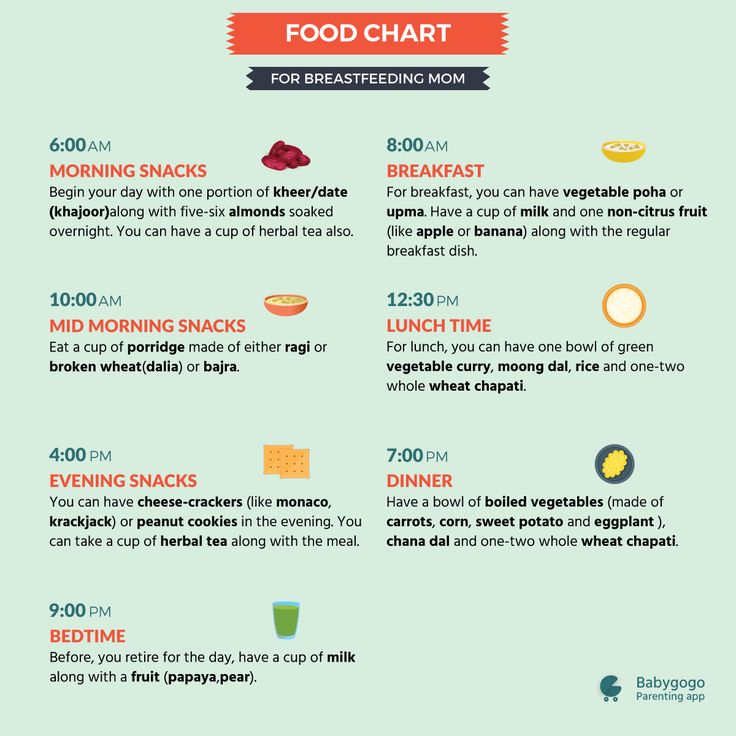 A person needs six to eight glasses of fluid a day, and even more if breastfeeding. 6 Make it a habit to drink a glass of water, milk or fruit juice without sugar every time you feed your baby.
A person needs six to eight glasses of fluid a day, and even more if breastfeeding. 6 Make it a habit to drink a glass of water, milk or fruit juice without sugar every time you feed your baby.
I love coffee. Do I need to quit caffeine?
Coffee, like everything you eat or drink, passes into your breast milk, so it is advisable to limit your intake while breastfeeding. Legal coffee limits vary by country, but the average recommendation is not to exceed 200-300 mg of caffeine per day (300 mg is equivalent to two cups of filtered coffee or four cups of tea). Talk to your doctor about the acceptable amount of coffee consumption for you. Also, don't forget that caffeine is found in cola and energy drinks, and a small bar of dark chocolate can contain up to 50 mg. 7
If I eat a varied diet, will my baby be less picky?
Breast milk has the flavor of everything you eat. 8 Therefore, if you eat a variety of foods during breastfeeding, giving your baby different tastes to try, he may like them in the future.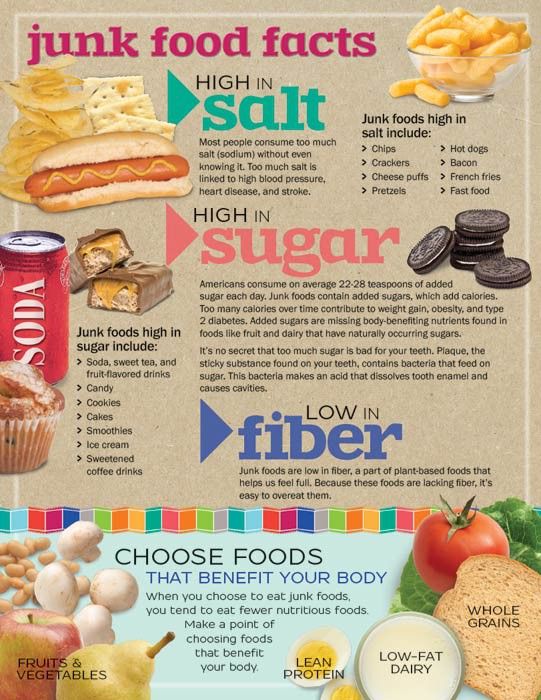
If you like spicy and spicy foods, there is no reason to refuse them while breastfeeding. When my first child was born, I ate a lot of spicy food. When my daughter was two years old, we went to Sri Lanka, coincidence or not, but she ate absolutely everything.
Can something in my diet not be suitable for a child?
At an early age, babies often suffer from colic or are picky eaters, so mothers naturally wonder if their diet is causing this. Probably not. Studies show that the proportion of children who are allergic to any component of breast milk is only slightly more than 1%. 9 Cow's milk, eggs, corn, and soy proteins in moms' diets are much more likely to cause allergic reactions than spicy foods, hot sauces, or cruciferous vegetables, which moms usually worry about.
If your baby is allergic to substances in your milk, it can cause profuse vomiting, rash, bloody stools, or prolonged constipation. If your baby has an intolerance to any food, you will notice symptoms such as moodiness and crying after feeding, burping, diarrhea, or the baby will press his knees to his chest.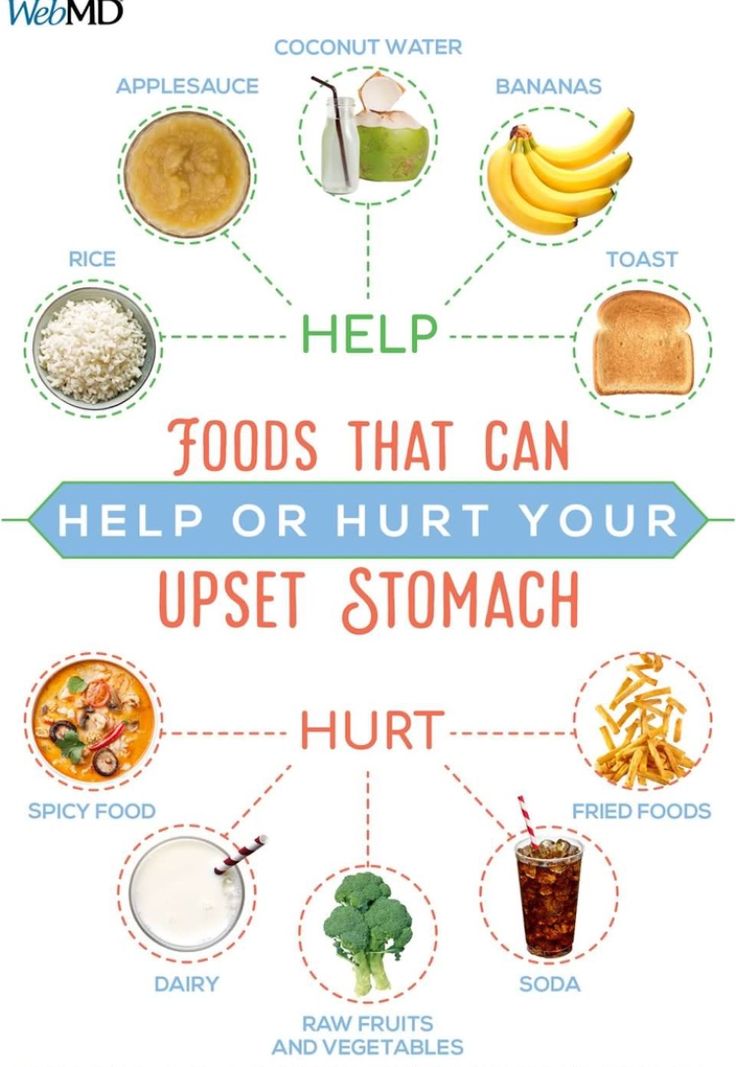 Contact your doctor if something is bothering you. He may suggest eliminating certain foods for a couple of weeks, and then see if the child's behavior changes after eating them again.
Contact your doctor if something is bothering you. He may suggest eliminating certain foods for a couple of weeks, and then see if the child's behavior changes after eating them again.
You can also keep a food diary: write down everything you eat and drink, as well as your child's symptoms, and you may notice some patterns. However, before cutting out any foods, such as dairy, always check with your doctor, as it's important to know that you're getting the nutrients you need from other sources. Depending on where you live, you will be referred to a nutritionist or other specialist.
Does a vegetarian diet affect breast milk?
If you are getting enough calories and all the nutrients your body needs (carbohydrates, proteins, fats, vitamins and minerals), then you have nothing to worry about. A vegetarian or vegan diet requires plenty of vitamin B12, vitamin D, calcium, and omega-3 fatty acids while breastfeeding, so opt for foods and supplements that provide you with these essential nutrients.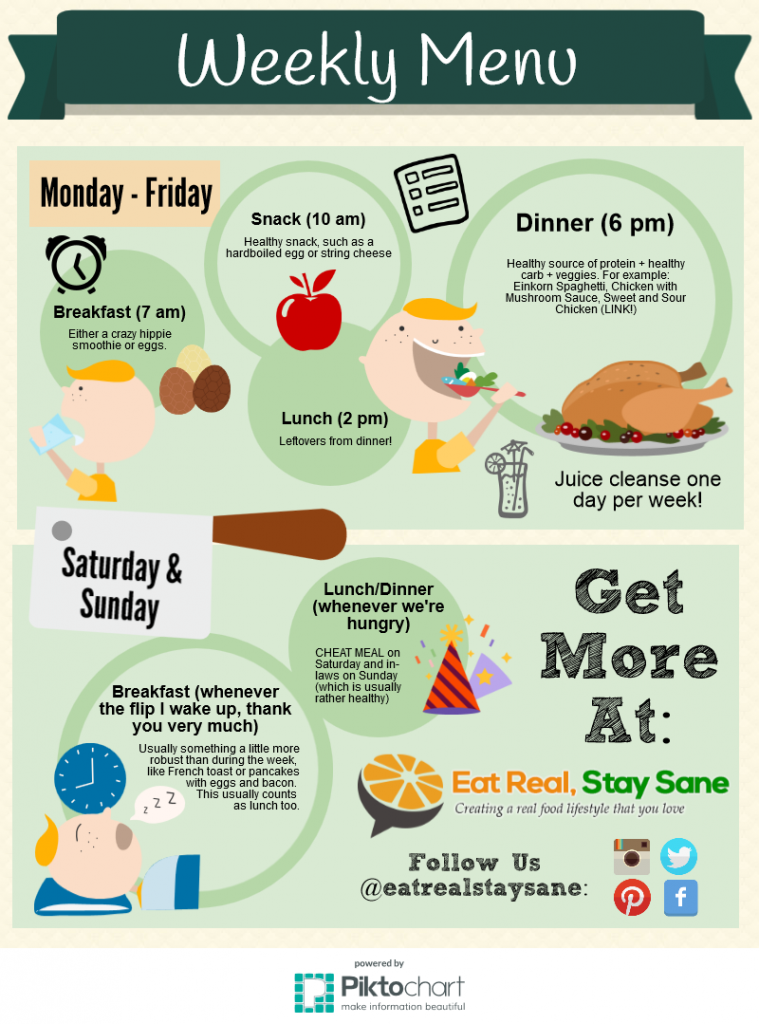
If you are on a vegetarian, vegan, macrobiotic, or other special diet, you may need additional medical advice to make sure you are getting all the nutrients your baby needs.
Literature
1 National Health Service (NHS) [Internet]. Burnley, UK: Department of Health; 2018. Should pregnant and breastfeeding women avoid some types of fish?; 2015 Jul 06 [cited 2018 Apr 12]; Available from: https://www.nhs.uk/chq/Pages/should-pregnant-and-breastfeeding-women-avoid-some-types-of-fish.aspx - National Health Service (NHS) [Internet]. Burnley, UK: Department of Health; 2018. "Should a pregnant and lactating woman refrain from eating certain types of fish?"; July 6, 2015 [cited April 12, 2018]; See article on site https://www.nhs.uk/chq/Pages/should-pregnant-and-breastfeeding-women-avoid-some-types-of-fish.aspx
2 Oberhelman SS et al. Maternal vitamin D supplementation to improve the vitamin D status of breast-fed infants: a randomized controlled trial.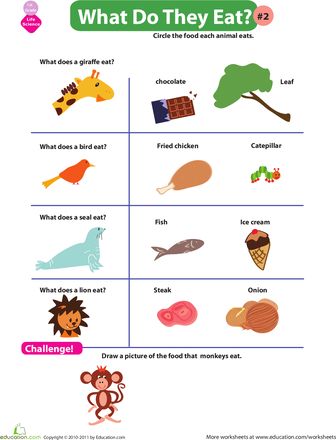 Mayo Clin Proc. 2013;88(12):1378–1387. - Oberhelman S.S. et al., Introduction of Vitamin D to the Diet of Nursing Mothers to Increase Vitamin D in children: a randomized controlled trial. Mayo Klin Prok. 2013;88(12):1378–1387. : effects on the mother and the fetus. Am J Obstet Gynecol. 2006;194(4):937-945. - Thomas M., Weisman S. M., "Calcium supplementation during pregnancy and lactation: effects on the mother and on the fetus". Am J Obstet Ginekol (American Journal of Obstetrics and Gynecology). 2006;194(4):937-945.
Mayo Clin Proc. 2013;88(12):1378–1387. - Oberhelman S.S. et al., Introduction of Vitamin D to the Diet of Nursing Mothers to Increase Vitamin D in children: a randomized controlled trial. Mayo Klin Prok. 2013;88(12):1378–1387. : effects on the mother and the fetus. Am J Obstet Gynecol. 2006;194(4):937-945. - Thomas M., Weisman S. M., "Calcium supplementation during pregnancy and lactation: effects on the mother and on the fetus". Am J Obstet Ginekol (American Journal of Obstetrics and Gynecology). 2006;194(4):937-945.
4 Pitt et al Reduced risk of peanut sensitization following exposure through breast-feeding and early peanut introduction. J Allergy Clinic Immunol. 2018;141(2):620-625. e 1 - Pitt et al., "Reducing the Risk of Peanut Allergy by Introducing Peanuts into the Breastfeeding Mother's Diet and as a Baby's First Food. " G Allergy Clean Immunol. 2018;141(2):620-625.e1
" G Allergy Clean Immunol. 2018;141(2):620-625.e1
5 Dewey KG. Energy and protein requirements during lactation. Annu Rev Nutr. 1997 Jul;17(1):19-36. - Dewey K. J., "Energy and Protein Requirements During Lactation". Anna Rev Nutr . 1997 Jul;17(1):19-36.
6 Food Standards Agency (FSA) [Internet]. London, UK: Crown copyright 2002. Eating for breastfeeding; [cited 2018 Apr 13]; Available from: https://www.food.gov.uk - Food Standards Agency (FSA) [Internet]. London, UK: State Copyright 2002. "Eat to feed" [cited April 13, 2018]. See article on https://www.food.gov.uk
7 National Health Service (NHS) [Internet]. Burnley, UK: Department of Health; 2018. Breastfeeding and diet; 2016 Jan 29 [cited 2018 Apr 12]; Available from: https://www.nhs.uk/conditions/pregnancy-and-baby/breastfeeding-diet - National Health Service (NHS) [Internet]. Burnley, UK: Department of Health 2018. Breastfeeding and Diet; 29 January 2016 [cited 12 April 2018] See article at https://www.nhs.uk/conditions/pregnancy -and-baby/breastfeeding-diet
Burnley, UK: Department of Health 2018. Breastfeeding and Diet; 29 January 2016 [cited 12 April 2018] See article at https://www.nhs.uk/conditions/pregnancy -and-baby/breastfeeding-diet
8 Mennella JA et al. A. et al., Prenatal and postnatal recognition of odors in children. Pediatrix (Pediatrics). 2001;107(6):e88.
9 Academy of Breastfeeding Medicine. ABM clinical protocol# 24: allergic proctocolitis in the exclusively breastfed infant. Breastfeed Med . 2011;6(6). - Academy of Breastfeeding Medicine. "AVM Clinical Protocol #24: Allergic Proctocolitis in an Exclusively Breastfed Child". Brestfeed Med (Breastfeeding Medicine). 2011;6(6).
Nursing mother's diet in the first month after birth: diet
Common mistakes
Diet for weight loss
The beginning of lactation is not the right time to diet. The body burns an additional 500-600 calories daily simply by producing milk.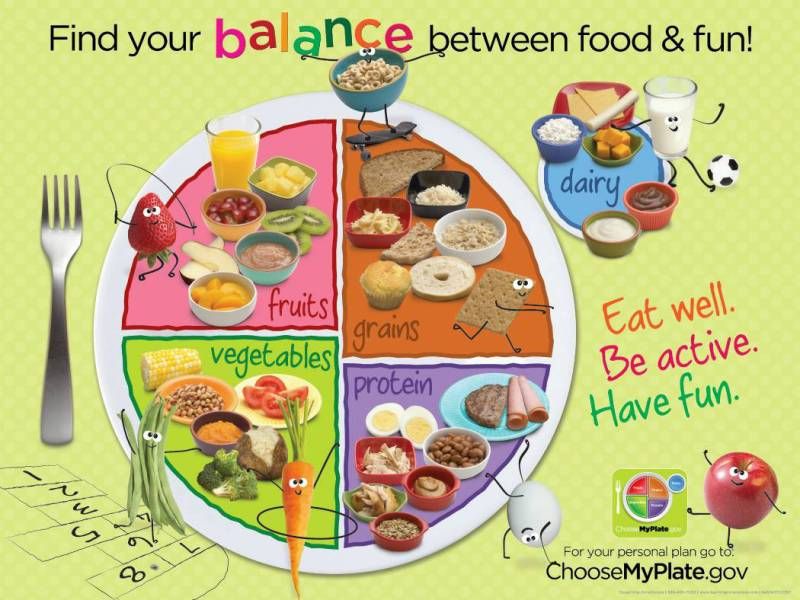 Watch your diet, do not "eat for two", do not eat foods that do not benefit the body. So you will lose the kilograms gained during pregnancy. Then the weight stabilizes.
Watch your diet, do not "eat for two", do not eat foods that do not benefit the body. So you will lose the kilograms gained during pregnancy. Then the weight stabilizes.
Meal skipping
Energy you need now, despite all the difficulties that inevitably arise after the birth of a baby, try to organize your life so that you eat regularly: three times a day plus two small snacks.
Alcohol
After nine months of completely avoiding alcohol, it seems that now the restrictions have been lifted. But you have to wait until the end of lactation. Alcohol quickly passes into milk, changes the taste and does not benefit the baby's health. Alcoholic drinks reduce lactation.
What to eat
A mother's diet immediately after birth should be primarily varied, rich in fruits, vegetables, grains and dairy products. Do not forget that now the baby receives all the "building materials" for the body exclusively from mother's milk.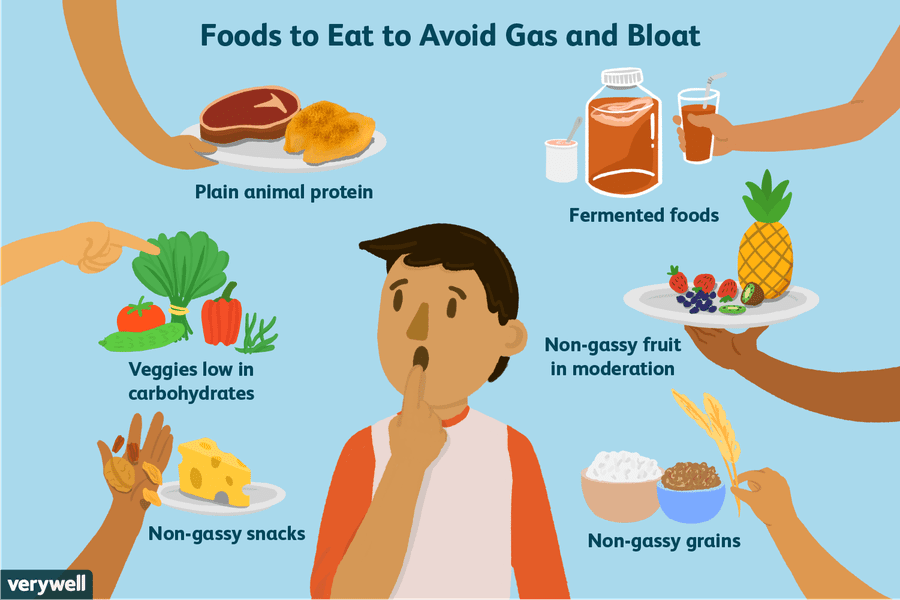
Several key vitamins and minerals often deficient in breast milk: iron, calcium, vitamins A, C and D. Pay special attention to foods:
- Iron is rich in meat and egg yolks, as well as legumes (lentils and beans). Iron deficiency leads to anemia, fatigue, whims. And this applies in this case to the mother and to the child. Vegetarian mothers who do not eat food of animal origin are recommended by doctors to take iron supplements, as well as B12, which supports liver function.
- If the baby does not have enough calcium for growth, then he will take it from his mother's body, her bones. They will become brittle and brittle, and the risk of fractures will increase. Make sure you have enough dairy (milk, yogurt, cheese, cottage cheese) and other calcium-rich foods (broccoli, egg yolks, celery, cabbage) in your diet. Remember that in the first six months of breastfeeding, the body should receive 1200 mg of calcium. If you're still not getting enough with food, talk to your doctor about vitamins.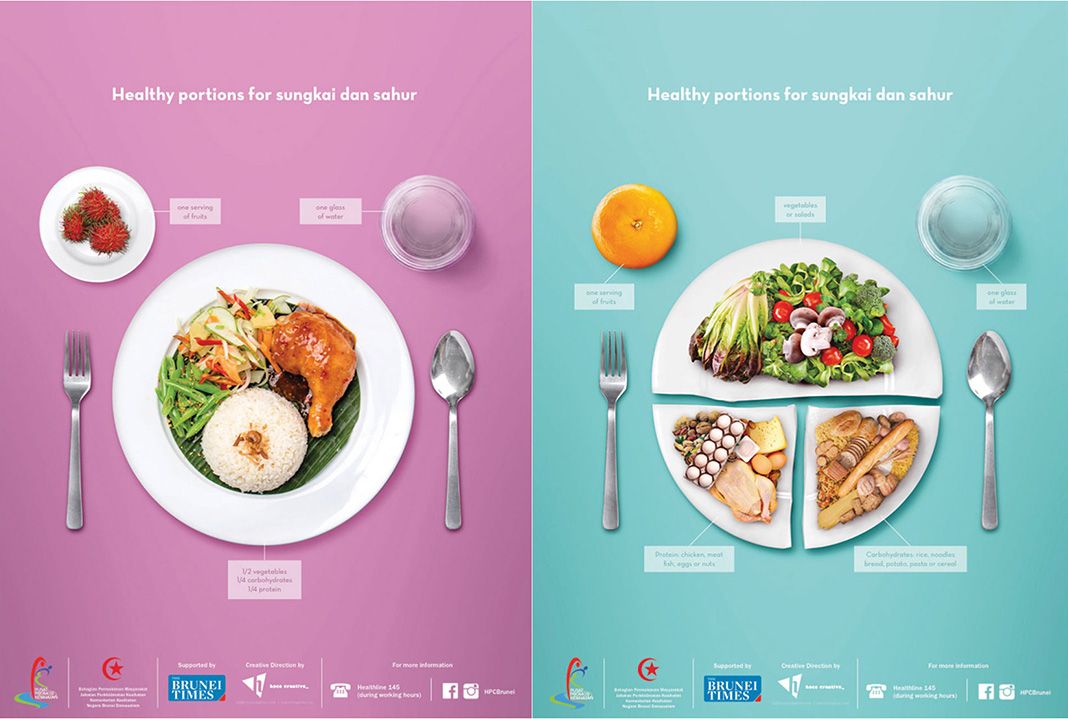 In addition to calcium, they must also contain vitamin D in order for calcium to be absorbed.
In addition to calcium, they must also contain vitamin D in order for calcium to be absorbed.
- Vitamin A is essential for good vision and skin. They are rich in egg yolks, butter and carrots. But carrots are a potentially allergenic vegetable, a woman should eat them carefully during lactation, it is better to start with stewed or boiled in small quantities and watch the baby's reaction.
- Vitamin C improves immunity. There is a lot of it in citrus fruits (lemons, oranges, grapefruits), but these fruits are strong allergens. They must be eaten carefully, watching the baby. And even if there is no allergic reaction, eat no more than one orange or grapefruit per day.
- Drink more water (water, not other liquids). One and a half to two liters a day will allow the body to properly absorb food and function normally.
Diet restrictions
Which foods should be avoided completely and which should be used with caution?
- Caffeine passes quickly into breast milk.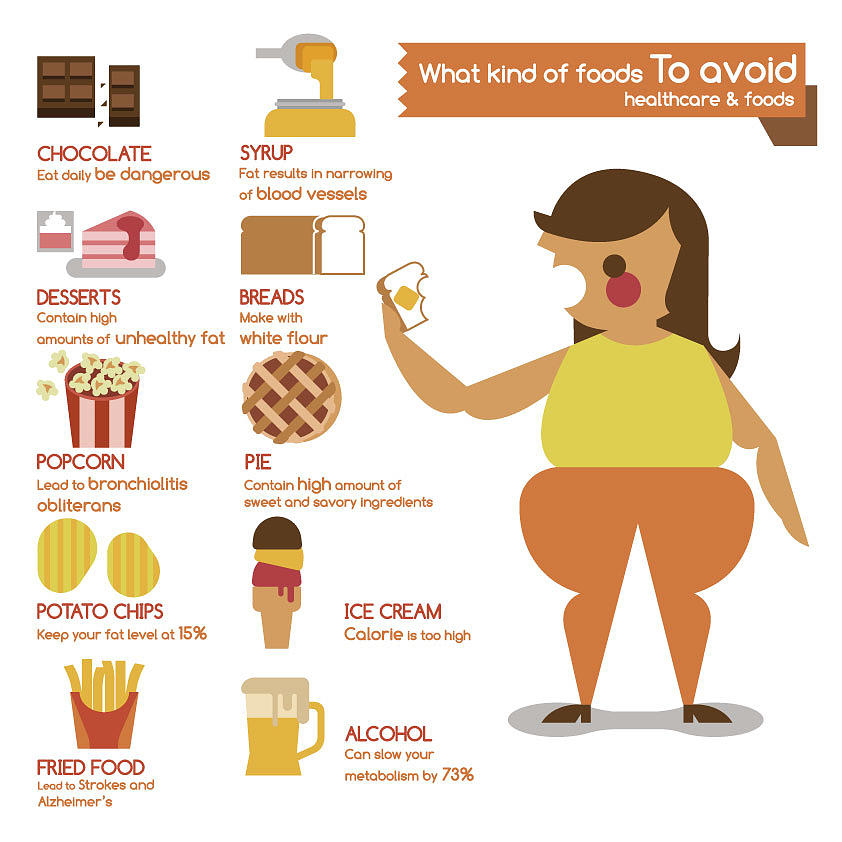 Don't drink more than two cups of tea, coffee, hot chocolate, or drinks like Coca-Cola a day. Decoctions of all kinds of herbs and other decaffeinated drinks do not create problems.
Don't drink more than two cups of tea, coffee, hot chocolate, or drinks like Coca-Cola a day. Decoctions of all kinds of herbs and other decaffeinated drinks do not create problems.
- Avoid energy drinks, they often contain substances that are harmful to children.
- Don't binge on sweets - there is no nutritional value, and problems with being overweight can start in mother and child.
- It is best to limit the consumption of fish that have the potential to contain methylmercury. This toxic compound is formed as a result of pollution of the world's oceans and along the food chain algae - plankton - small fish - large fish gets to our table. Excess methylmercury is bad for the body. Most of it in large fish-eating individuals, limit (do not completely exclude) the consumption of tuna, marlin, perch, pike. At the same time, it is impossible to completely abandon fish, since it is rich in essential amino acids (for example, omega-3), which are necessary during this period of baby development.
- Another problem that breastfeeding mothers are increasingly facing is food allergies in babies. Doctors have no common opinion about the causes of its occurrence. Someone talks about a genetic predisposition, someone about bad ecology. Anything can be an allergen, from milk to fish. At the very beginning of feeding, introduce each new product with caution and do not eat anything in large quantities. If you notice characteristic irritations and redness on the baby's skin, remember what you ate before feeding. Eliminate this product and the rash will be gone within 48 hours. It is easy to stick to a diet when it comes to one product, such as buckwheat. The life of a mother during lactation is greatly complicated if the child is allergic to milk or gluten. She will have to eliminate all foods with lactose or flour from the diet. Compensate for the lack of nutrients in food with vitamin complexes.
What to eat to get more milk?
There are various superstitions in many countries.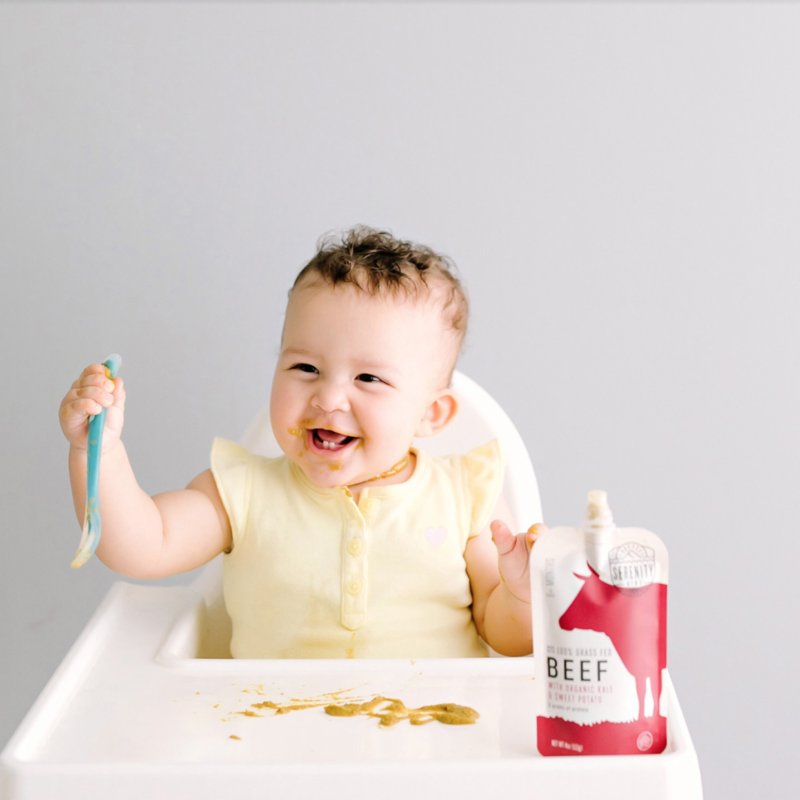 Many believe that oatmeal, almonds, rice, chicken, or milk tea promote lactation. The most common misconception on this topic concerns beer. This is not true, alcohol, on the contrary, reduces "performance".
Many believe that oatmeal, almonds, rice, chicken, or milk tea promote lactation. The most common misconception on this topic concerns beer. This is not true, alcohol, on the contrary, reduces "performance".
And there are no scientific studies that prove that this or that product consumed by a nursing woman increases lactation.
If there is not enough milk, breastfeed more often and make sure that the breast is completely "empty" after each feed.
Feeding menu
The mother's diet during the first months of breastfeeding should be balanced. Do not lean on one product, it can cause stomach problems in the child.
A woman's daily menu immediately after giving birth must include:
- At least five fruits and vegetables
- Bran bread, durum wheat pasta, rice or other grains or potatoes
- Four dairy products a day
- Meat, eggs or fish once or twice a day
Let's be realistic - in our hectic time it is very difficult to follow all the recommendations of nutritionists.